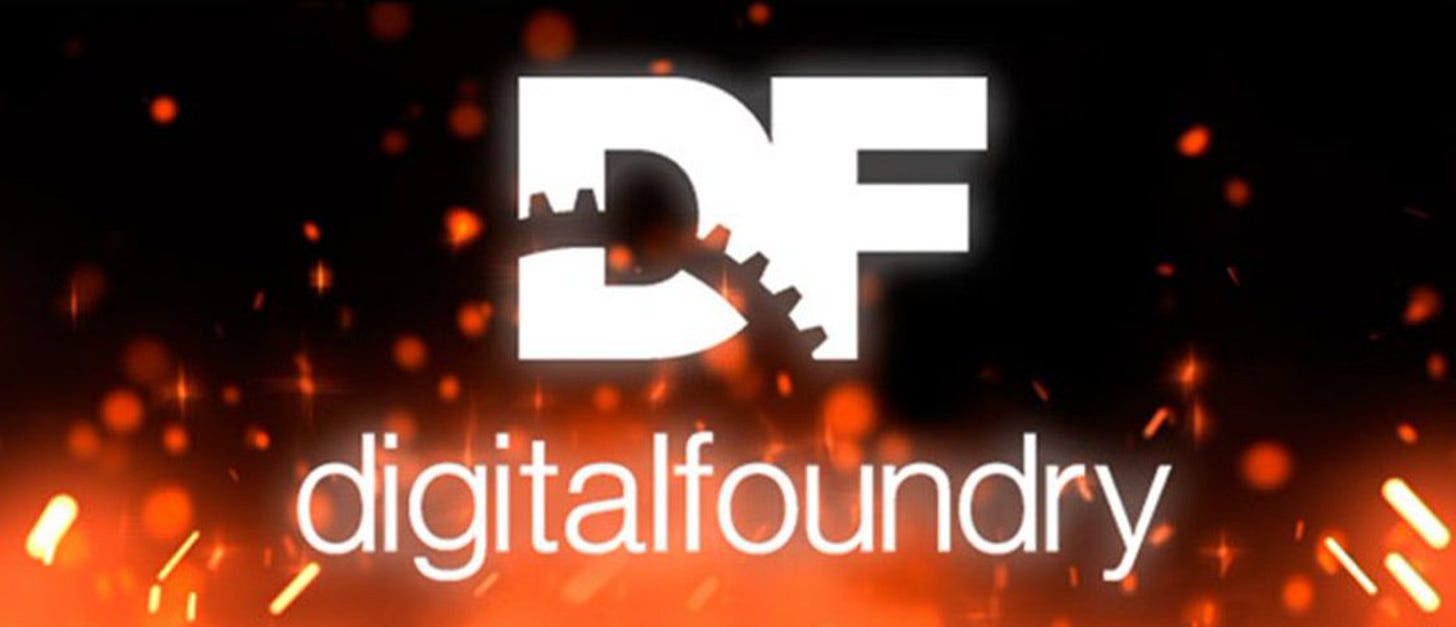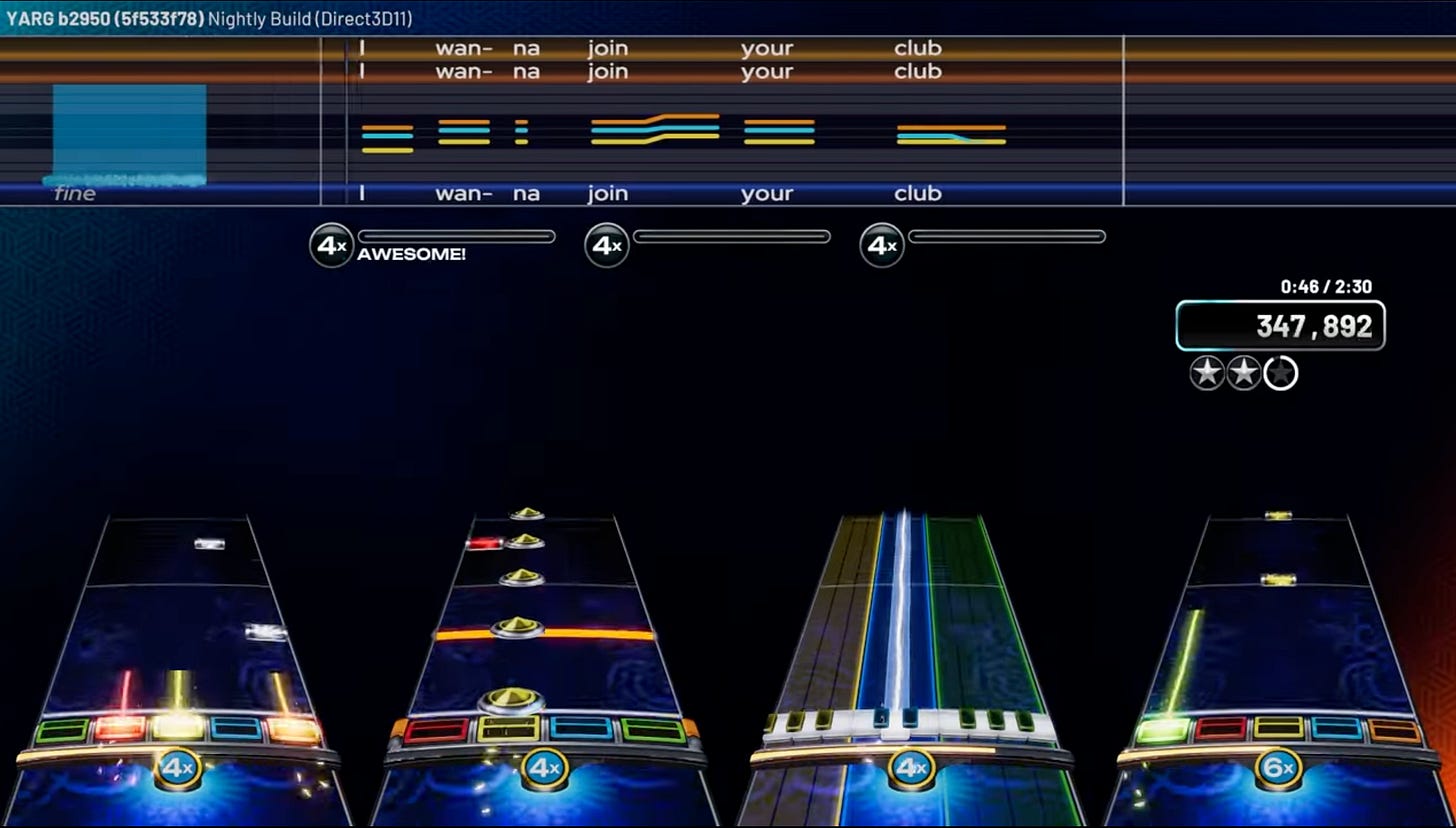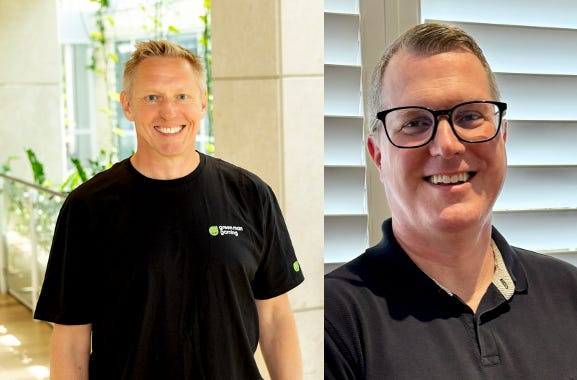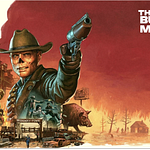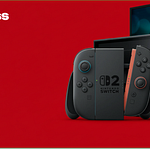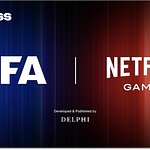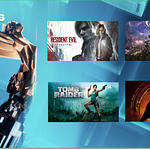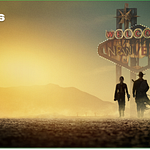Listen now on Apple, Spotify or YouTube
In This Edition
- Digital Foundry goes independent
- We interview the new RedOctane
- Green Man Gaming launches charity bundles
- It’s financials season
Hello and welcome back to another edition of The Game Business Show and Newsletter. It’s lovely to see you.
It’s a bumper edition this week. We speak to the new RedOctane team about resurrecting the original Guitar Hero publisher, while we chat to Green Man Gaming on creating a competitor to Humble Bundle.
You can listen/watch the full thing above, which includes insight and anecdotes from our guest host Simon Byron (who was part of the original Guitar Hero team and now launches hit indie games as part of Yogscast. He’s also the guy who signed the 55-million selling Human: Fall Flat). It’s a really fun episode, featuring some startling stories from those early Guitar Hero years. Do check it out.
If you don’t have time for that, the Newsletter below features all the key stories. It even contains a bonus story not in the Show, with the news that popular media outfit Digital Foundry has gone fully independent.
I hope you enjoy it!
Digital Foundry goes fully independent
Specialist games publication Digital Foundry is now fully independent.
The media brand, which is renowned for its technical analysis of gaming hardware and software, was part-owned by IGN, which it obtained following its acquisition of Gamer Network in 2024.
“Digital Foundry's YouTube channel began life in 2015 as a joint venture with Gamer Network at a time when it was an independent media business, before its acquisition by ReedPop and then IGN,” Digital Foundry owner Richard Leadbetter told The Game Business in a statement.
“We've enjoyed success across the years but since the ReedPop days, we've always wanted to be fully independent and to chart our own course. I'd like to thank IGN for giving us the opportunity to make that happen and to Gamer Network founder Rupert Loman for his phenomenal support in making this deal happen. It's a highly volatile landscape for games media right now, but we firmly believe there's a role for independents - experts in their fields - to make a difference. Independent media thrives on the support of its communities and I hope the audience is excited by the news and gets behind our plans and aspirations for the future."
IGN acquired Gamer Network from ReedPop last year, but what followed has been a period of turmoil for the entire games media landscape. IGN has gone through multiple rounds of redundancies, and the loss of key talent from its Gamer Network brands.
However, IGN remains committed to its new properties, and have recently added new writers onto GamesIndustry.biz and Eurogamer.
You can watch Digital Foundry’s independence announcement video here.
Note: I was part of GamesIndustry.biz last year as the head of the publication.
An open-source community guitar game led to the reformation of RedOctane
RedOctane, the publisher responsible for the 2000s smash hit Guitar Hero, has reformed at Embracer.
The new studio will create a rhythm guitar game, and it features many of the original Guitar Hero leadership team. This includes studio head Simon Ebejer, who was previously production director on the Guitar Hero series. Original RedOctane founders Charles and Kai Huang have also returned as advisors.
The new RedOctane is part of Embracer Freemode, which is led by Lee Guinchard. Guinchard actually ran the original Red Octane when it was part of Activision Blizzard (which acquired the company in 2006). And finally, within Embracer Freemode is a hardware company called CRKD, which is made up of many of the original RedOctane designers who made the Guitar Hero controllers. CRKD recently developed a Gibson Les Paul Guitar Controller for use in rhythm games including Fortnite Festival (a game made by original Guitar Hero developers Harmonix).
So the new RedOctane is a reunion for many of the people who worked on the original Guitar Hero titles. However, the key to this revival is less about the old guard, and more to do with an entirely new group of creators.
“Coming out of COVID, I was curious again about [Guitar Hero],” Guinchard told The Game Business. “One of my kids was playing Guitar Hero Live on Apple TV and I was like: ‘What's going on here?’ ‘Oh, we stole [the guitar] off your wall and we're all having fun.’ It got me going again. I connected back to Brian Bright, who was game lead on Guitar Hero 3 and beyond. We started riffing on this and it led us into this community. We didn't realize that there was a community that was still there. It was still active, and more importantly, they were making their own games.”
One of those games was called Yet Another Rhythm Game, or YARG, an open-source Guitar Hero-like game created, in his spare time, by Alex Jefferys.
“All the source code for the game is publicly available,” he explained. “Anyone can go about and modify it and make their own changes. And they can submit it and officially we can add it to YARG.
“I started working on [YARG] in late 2022 as a little side project. I got the idea originally when I found the old Guitar Hero controllers in my parents’ house. I had a lot of great memories with that game. I wanted to capture that feeling again. In 2023, after I worked on the project a bit, I made YARG public. And it immediately caught the attention of multiple different members of the plastic guitar community.
“Because of its open-source nature, we had a bunch of community members join the project and we formed a team. Last year, the YARG team got in touch with Brian Bright. Through him I got into contact with Lee. He showed us the new guitars [CRKD] was working on, which was very awesome. And, at that point, the question came up: ‘Do you guys want to make a game?’ And we’re very honored to do so.”
“We didn't realize that there was a community that was still there. It was still active, and more importantly, they were making their own games”
It was this new group of enthusiastic fans that got Simon Ebejer excited to return.
“I loved working on those Guitar Hero games because they allowed me to combine my organizational skills and my creativity in a way that I hadn't previously experienced in the music industry or in the video game industry,” he said. “And I didn't think that I'd have an opportunity to do something like that again until Lee introduced me to Alex. And I was just like, ‘holy shit, this is amazing. We can do this and do something great with the community and for the community that's been keeping these rhythm games alive ever since my days of working on Guitar Hero’.”
Guinchard is realistic about the opportunity with this new RedOctane. He’s not anticipating reigniting the $2bn plastic guitar market from the mid-2000s. This is very much targeted on the existing community.
“[The budget] is conservative,” he told us. “It’s not huge. But in the modern times, with inflation, I would say it's similar to the original game [which was around $1.6m]. We were there throughout the period and we saw budgets really bloating, and developing features in really quick timelines. There was a bit of an arms race between Guitar Hero and Rock Band. Here, we’ve been quite thoughtful. So it’s a small team really flushing out what we want to do. With modern tools and modern engines, there is a path to making games at a reasonable price that have high production values.”
But he hopes that it could reach a broader market again, particularly with Harmonix’s Fortnite Festival introducing the concept to younger audiences.
“[Fortnite Festival] does open the eyes to some of the younger folks who might be curious. And then, with what we’re going to make here, hopefully we can progress them onto rocking out more, and maybe even to getting real instruments in the future.”
And one thing we shouldn’t expect this time, are 20 games coming out over a five-year period.
“Back when I was working on Guitar Hero, it was box product after box product after box product,” Ebejer said. “The ability to update games and even provide quality-of-life fixes, let alone add new features and content, was incredibly limited back then.”
Guinchard concluded: “We want to build what we're building as a sort-of forever game. We’re not going to build something, release it, and then the next year there'll be a new one. It will be built over time, and that will allow us to build into other music rhythm game ideas that we have and test them.
“We have this fertile test ground, because we’re part of the community. We decided we’ll just jump into the community, eight, nine months ago, and just be part of it. That’s going to be the thing that drives future modes and future features. It won’t be us sitting in a room pushing it down onto the world because we need a new feature to market.”
You can listen to an extended version of the interview with Lee, Simon and Alex in the Show above. Meanwhile, our guest host Simon Byron shares stories from his time working on promoting the original Guitar Hero games.
Green Man Gaming hires Humble Bundle veteran for new Charity Bundle initiative
Green Man Gaming has hired Paul Herron, a former VP at Humble Bundle, to launch its own Charity Bundle business.
The digital retailer says the project is designed to help improve game discovery and provide incremental revenue for studios and publishers, while supporting local charities. The first charity bundle will launch in October in support of SpecialEffect’s One Special Day.
The company says that the new charity bundles will offer visible stock indicators, in order to show exactly what’s available, and customers are guaranteed to receive their codes instantly. The bundles will also feature regional pricing.
“More money going into charities and good causes around the world is obviously a good thing,” Herron told us. “And competition is good for everybody. The addressable market for games is huge, so we wanted to have our own Green Man Gaming slant on that and do something a bit more customer-focused. It’s another destination where [customers] can find a bunch of great games, and discover stuff they probably haven’t seen because there are 18,000/19,000 games released on Steam last year.
“For publishers, it’s driving that incremental revenue, it’s driving that exposure and it’s driving players into their games.”
In addition to the charity bundles, Herron is also leading Green Man Gaming’s expansion into the Asia-Pacific market.
For more on Green Man Gaming’s Charity Bundles, click here.
Meanwhile…
PlayStation users have increased 6% from 116 million to 123 million, Sony has announced in its latest financial results. The firm sold slightly more PS5 consoles in the financial quarter to June 30 than the same period the year before (up from 2.4 million to 2.5 million), which means the company has now shipped over 80 million PS5 consoles since the machine launched in 2020. The company also reported a strong increase in digital sales.
Valve has disputed Mastercard’s claim that it was not responsible for the recent removal and rule changes around certain adult games being sold on digital stores, including Steam and Itch. Both PC retailers have cracked down on NSFW games on its platforms after payment processors raised concerns about the types of products being sold on the platforms. This followed a campaign from the group Collective Shout, which have called for the removal of ‘incest and rape’ games. Mastercard said in a statement it allows for all ‘lawful purchases’ on the network. However, Valve said that Mastercard did communicate, via payment processors, its concerns and the risk it posed to the Mastercard brand.
Nintendo has raised the price of original Switch consoles by as much as 15% in the US. It has also increased the price of its Alarmo alarm clock by 10%, and the Switch JoyCon controllers by 12.5%. Amiibo prices have also increased by up to 33%.
Sticking with Nintendo, the company has now sold 5.82 million Switch 2 consoles, cementing its place as the fastest selling games console in history.
Roblox revenue has jumped 21% year-on-year. It has also seen bookings increase 51%, and unique payers increase 42%. The firm says it wants 10% of the global gaming content market flowing through its platform.
Capcom posted strong back catalogue sales in its latest financial report, but reported a disappointing second quarter for its Monster Hunter Wilds title. Wilds was released in February and became Capcom’s fastest-selling video game. However, consumer reception has since cooled, and the game only sold slightly more than the previous Monster Hunter game (Monster Hunter Rise) during the second quarter.
Xbox Game Pass annual revenue has surpassed $5bn for the first time. Microsoft also revealed that its gaming revenue has increased 10% for the year, driven by strong game sales and subscription revenue. Hardware sales, however, continues to decline.
That’s it for today’s bumper edition of The Game Business Show and Newsletter. Join us back next week as we gear up for Gamescom in Germany.



